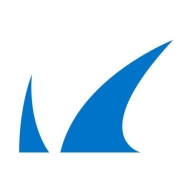

Fortinet FortiGate and Barracuda CloudGen Firewall are robust network security solutions. While Fortinet FortiGate is recognized for its comprehensive security functions and reliability, Barracuda CloudGen Firewall demonstrates strength with its network performance enhancements and cloud integration.
Features: Fortinet FortiGate provides high-performance throughput, extensive security features like intrusion prevention and application control, and impressive cloud operability. Barracuda CloudGen Firewall offers advanced threat protection, unlimited VPN licensing, and efficient SD-WAN capabilities, ensuring superior bandwidth management and application control.
Room for Improvement: Fortinet FortiGate could enhance its reporting capabilities, ease of integration with third-party solutions, and advanced troubleshooting features. Barracuda CloudGen Firewall could benefit from improved malware protection, more customizable security policies, and a more user-friendly interface for less experienced administrators.
Ease of Deployment and Customer Service: Fortinet FortiGate provides straightforward deployment with comprehensive documentation and support, making it ideal for smooth rollouts. In contrast, Barracuda CloudGen Firewall excels with versatile deployment options suitable for complex network architectures, backed by strong customer service support.
Pricing and ROI: Fortinet FortiGate is known for offering solutions with a lower initial investment, making it desirable for budget-conscious organizations. Barracuda CloudGen Firewall, while having a higher setup cost, promises a better long-term ROI due to its advanced features and performance efficiencies, especially valuable for sizable network deployments.
The centralized management and automation features have reduced manual monitoring efforts, saving our IT team several hours per week.
Clients are now comfortable and not wasting productive hours on IT support.
The automation part is giving us a cost benefit and speed; we can react faster.
It's a very useful tool to mitigate and protect your enterprise.
The support team is responsive and knowledgeable, assisting us promptly whenever we have faced configuration questions or technical issues.
Barracuda's partner support is better than the majority, and it stands out as one of their strengths.
The overall security has been satisfactory, with no breaches.
The quick resolution of issues with Fortinet FortiGate is due to the support of the company and the fact that the equipment is easy to work with.
I would rate the technical support for Fortinet FortiGate a ten out of ten.
As a solution provider, when I encounter problems, I connect directly with Fortinet support, and they provide solutions within a very short time.
Its flexible licensing and hybrid deployment options allow it to adapt to evolving network requirements, ensuring continuous security and reliable operations.
When positioning into customers, some larger enterprise customers tend to move towards one of the top three: either Cisco, Fortinet, or Palo Alto.
They scale up really well from smaller models like the FortiGate 40 and 50 to bigger sites with the FortiGate 100 for more throughput - up to enterprise datacenters.
The variation comes in terms of the interfaces and throughputs, but from a security perspective, you get the same benefit, irrespective of whether you have an entry-level unit or an enterprise.
We determine sizing based on multiple factors: number of users, available links, traffic types, server count, services in use, and whether services will be published.
Its robust infrastructure and real-time monitoring give us the confidence that our network remains secure and operational at all times.
We have very few issues with Barracuda Firewall, even in the case of zero-day vulnerabilities.
Version 8.0 had issues, but the newer version 9.0 seems to have improved performance regarding these issues.
We're experiencing 99.999% availability consistently.
I would rate the stability of Fortinet FortiGate a ten out of ten.
Currently, we are experiencing a general outage of one of the main internet service providers of the Dominican Republic, and we have not been impacted in our operations because with SD-WAN, we have another internet service provider and we are working with the second WAN connection without any disruption.
Integration with AI would be helpful as modern attacks often utilize AI.
It would be beneficial to merge the existing application policy with the main policy into a single unified policy to improve manageability.
One area that could be enhanced is the user interface, making it slightly more intuitive for new users.
These sessions should be around five to ten minutes long, allowing users and partners to quickly grasp the information without disrupting their daily tasks.
The solution should be able to implement machine learning and analytics of all the logs for threat detection and protection.
It would be better for customers to get immediate replacements even with a standard subscription.
Our experience with Barracuda CloudGen Firewall pricing and licensing has been reasonable and transparent.
The license price of Barracuda CloudGen Firewall is lower than others, and maintenance or support is included.
It is neither the cheapest nor the most expensive option available.
Last year, I renewed the support for three years, which can sometimes be expensive but depends on the security benefits and how it helps us.
It offers cost savings as it is generally cheaper than the competition.
It is about 20% cheaper.
This integration helps secure our data and applications from attackers trying to gain access and detect malicious activity.
The real-time monitoring helps us quickly identify unusual traffic patterns and potential threats, allowing us to respond immediately and maintain secure and uninterrupted network operations.
The most valuable features of Barracuda CloudGen Firewall include antivirus protection, anti-DDoS, and IPS.
The most valuable feature of FortiGate is FortiView which provides proactive monitoring.
We got a firewall and gave an SSL VPN to my client to connect to their servers, after which, such kind of activities involving ransomware attacks stopped.
They put in a thing called the FortiCookbook, which is very easy to read with real-life scenarios that make networking tasks like joining networks very straightforward.
| Product | Market Share (%) |
|---|---|
| Fortinet FortiGate | 18.7% |
| Barracuda CloudGen Firewall | 0.7% |
| Other | 80.6% |


| Company Size | Count |
|---|---|
| Small Business | 30 |
| Midsize Enterprise | 9 |
| Large Enterprise | 6 |
| Company Size | Count |
|---|---|
| Small Business | 357 |
| Midsize Enterprise | 133 |
| Large Enterprise | 188 |
Barracuda CloudGen Firewall is a comprehensive network security solution that provides advanced protection for organizations of all sizes. It offers next-generation firewall capabilities, including application control, intrusion prevention, and web filtering.
With its integrated VPN functionality, it ensures secure remote access for employees. CloudGen Firewall also includes advanced threat intelligence, leveraging real-time updates to detect and block emerging threats. Its centralized management console simplifies administration and provides visibility into network traffic.
CloudGen Firewall can easily adapt to changing business needs based on its scalable architecture.
Fortinet FortiGate is a versatile network security tool offering features like VPN, firewall, web filtering, intrusion prevention, and scalability. It is known for its performance and integration with other Fortinet products, making it a preferred choice for robust cybersecurity.
Fortinet FortiGate stands out as a comprehensive cybersecurity solution with strong performance and ease of configuration. It delivers unified threat management, integrating features such as dynamic routing, SD-WAN support, and centralized management. Despite its strengths, improvements in the web interface's stability, pricing structures, and reporting capabilities are needed. Users seek better integration with third-party tools and automation advancements to enhance the experience further. These enhancements, alongside improvements in bandwidth management and the reduction of licensing costs, are points of interest for users looking to capitalize on FortiGate's extensive capabilities.
What are Fortinet FortiGate's key features?Fortinet FortiGate is widely implemented across industries as a primary firewall system for securing internet gateways and safeguarding data centers. It supports businesses in achieving SD-WAN integration and enhances cybersecurity by providing essential features like antivirus, web filtering, and application control. Enterprises utilize FortiGate for securing remote connections and ensuring compliance with security standards, making it adaptable for different network sizes and industries.
We monitor all Firewalls reviews to prevent fraudulent reviews and keep review quality high. We do not post reviews by company employees or direct competitors. We validate each review for authenticity via cross-reference with LinkedIn, and personal follow-up with the reviewer when necessary.